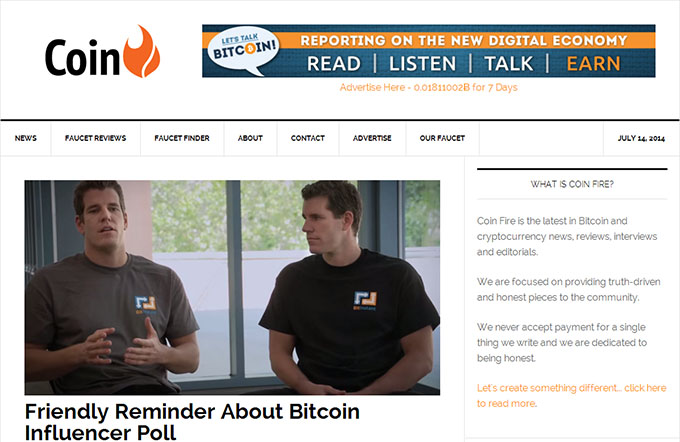- Qualcomm Launches Snapdragon 4 Gen 2 Mobile Platform
- AMD Launches Ryzen PRO 7000 Series Mobile & Desktop Platform
- Intel Launches Sleek Single-Slot Arc Pro A60 Workstation Graphics Card
- NVIDIA Announces Latest Ada Lovelace Additions: GeForce RTX 4060 Ti & RTX 4060
- Maxon Redshift With AMD Radeon GPU Rendering Support Now Available
Undercover Sting Reveals that Many Bitcoin News Sites Can’t be Trusted
Like any type of enthusiast, those who follow Bitcoin tend to be passionate about it. They rely on many different sources of information in order to hone their knowledge – and believe me, there are many cryptocurrency-specific sites out there to help get that job done. I think like most people who read a lot of news in any given day, it’s easier to assume that the information you’re reading is trustworthy than to believe it’s not. If a site presents itself well, it’d give you no reason to believe otherwise.
This is a subject Tom Butterfield wondered about. Are all Bitcoin news sites actually trustworthy? He wanted to find out, so he spent an enormous amount of time on a “Chris Hansen Style Sting”, where he contacted “hundreds of sites” to see which ones would accept payment in exchange for a plug. To make this believable, he was representing a (fake) up-and-coming Bitcoin exchange. As new exchanges come out all the time, most sites would immediately believe it. But would they accept cash for a plug?
What’s the problem with accepting payment for content? Tom puts it quite well, “You might be wondering why this is an issue? Should writers not be paid for the work they produce. Absolutely, journalists and writers should be paid – they just shouldn’t be paid by the people they are covering.”

Coin Fire is one website that was deemed “Trustworthy”
The idea is simple: If someone is paid directly for content, they’re automatically going to be biased. While a journalist could assure themselves that they wouldn’t be biased, it’s hard to argue that the chance of it is going to be strong. After all, if a company pays you once for a plug, they’ll probably do it again – but they won’t if you’re negative.
Tom discovered that many Bitcoin news sites will accept payment for a plug. Overall, Coin Fire, CoinDesk, and The Crypto Crimson are deemed trustworthy. CryptoCoinsNews and Coin Report accept payment for a plug, but they at least mark such posts as “sponsored”. I’m not going to talk about those deemed untrustworthy, but this Reddit thread has that information and more.
Tom’s sting reminds me of an experience we had back in 2007, where a DailyTech writer conducted the exact same experiment. In our case, we were questioned whether or not we accept payment for motherboard reviews (we of course don’t – for any content). Unlike Tom, DailyTech refused to publish the list of guilty parties. Deep-down, I wish that hadn’t been the case; at least, the names of sites that didn’t accept payment could have been released.
Nonetheless, this latest experiment highlights the fact once again that you should be careful about where you get your information online, and it’s always a good idea to look at multiple angles of the same subject. Of course, as you visit sites over time, you’ll be able to gain the understanding of whether they’re trustworthy or not, and it’s definitely worth patting those deemed trustworthy on the back.
For his efforts, Tom’s been receiving threats of lawsuits and apparently even a death threat. I don’t admire that position, but appreciate his investigations.




